FRAXA Research Foundation funded a grant of $90,000 over 2016-2018, for a postdoctoral fellowship for Thomas Maurin, PhD, working under the mentorship of Dr. Barbara Bardoni at INSERM in France. The team works on the biochemistry of the Fragile X protein. They have found that PDE inhibitors (a class of drugs) show promise as treatments for Fragile X syndrome. In related research, FRAXA is currently funding a clinical trial of PDE4D inhibitors.
Read moreResearch
Metformin and Aberrant Insulin Signaling in a Fragile X Mouse Model
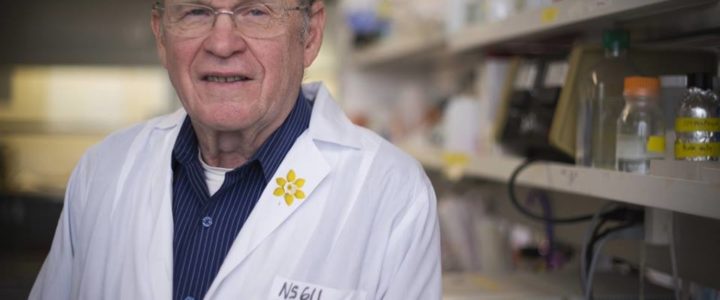
This 2017-2018 grant of $90,000 is funded jointly by FRAXA and the Fragile X Research Foundation of Canada for the first year. A previous FRAXA grant to the Sonenberg lab has led to great interest in the available drug, metformin, as a potential treatment for Fragile X syndrome. FRAXA is currently organizing clinical trials of metformin.
Read moreNKCC1 Inhibitor Bumetanide Corrects Synaptic and Circuit Hyperexcitability in Fragile X Mouse Model

With $258,000 in grants since 2013 from FRAXA Research Foundation, Dr. Anis Contractor and Dr. Qionger He at Northwestern University are exploring the potential of the available drug bumetanide to correct altered GABA signalling in a mouse model of Fragile X syndrome.
Read moreNon-Invasive Imaging as a Biomarker for Fragile X Clinical Trials
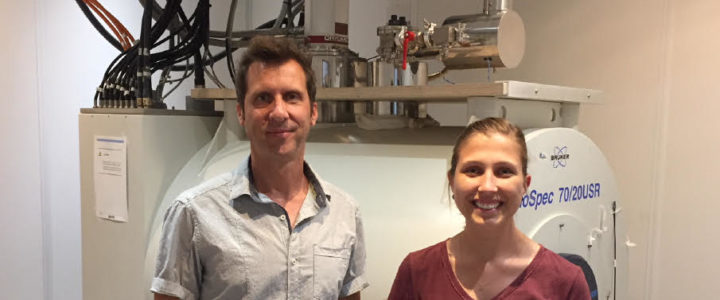
FRAXA Research Foundation has renewed Kamila Castro’s 2017 FRAXA Fellowship for a second year. With this $90,000 award, Kamila Castro and Principal Investigator Dr. Andreas Frick are using non-invasive magnetic resonance imaging (MRI) methodology to assess connectivity changes in the brain in Fragile X. If this project is successful, we will have objective outcome measures to evaluate new treatments, both in mice bred to mimic Fragile X and in human patients.
Read moreActivity-Dependent Translational Profiling in Fragile X Neurons

FRAXA’s first-ever grant to researchers at the University of California at Berkeley goes to Dr. Nicholas Ingolia and Dr. J. Wren Kim to analyze the proteomics of Fragile X neurons using a newly developed tool which can distinguish the profiles of neurons that are actively responding to signals.
Read moreUnderstanding and Reversing Hypersensitivity to Sounds in Fragile X Syndrome
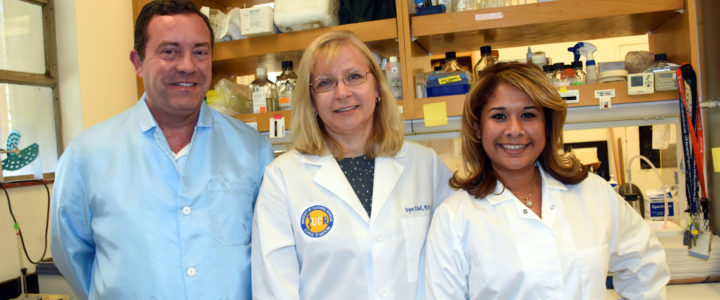
With a $90,000 grant from FRAXA Research Foundation over 2018-2019, Drs. Devin Binder, Iryna Ethell, and Patricia Pirbhoy at the University of California at Riverside aim to understand – and reverse – hypersensitivity to sound in Fragile X syndrome.
Read moreThree-Dimensional Model for Identifying Fragile X Treatments

With a $90,000 grant from FRAXA Research Foundation awarded in 2018, Dr. Peng Jin and Dr. Juhnee Kang at Emory University will develop and analyze Fragile X brain organoids to understand the disorder and identify treatment targets.
Read morePharmacological Tolerance in the Treatment of Fragile X Syndrome
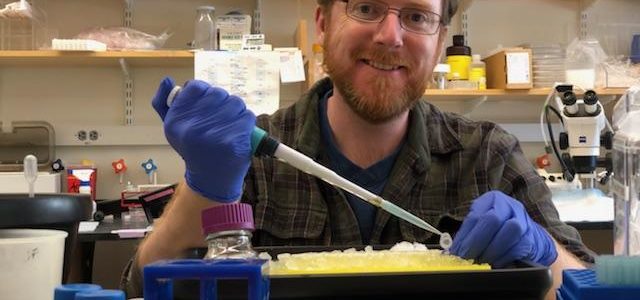
With a $90,000 grant from FRAXA Research Foundation over 2018-2019, Dr. Patrick McCamphill, postdoctoral fellow in Dr. Mark Bear’s lab at Massachusetts Institute of Technology (MIT), is investigating drug tolerance to mGluR5 antagonists, arbaclofen, and other potential Fragile X treatments. He is also exploring ways to overcome it.
Read moreCan CRISPR Cure Fragile X Syndrome?
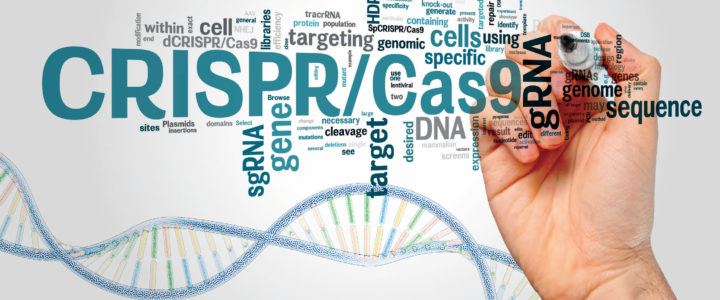
CRISPR/Cas9 was used by MIT researchers to remove the molecular tags that keep the mutant gene shut off in Fragile X syndrome neurons and resulted in some of them producing protein normally. Much work is being done right now, with exciting new discoveries coming at a fast and furious pace.
Read moreRepurposing Study II: Evaluating Combinations of Drugs to Treat Fragile X

FRAXA Research Foundation initially partnered with Healx in 2016 to identify existing drugs with potential to treat Fragile X syndrome, using machine learning algorithms and computational biology. The study produced results, and now FRAXA and Healx have launched a new round of studies to evaluate combinations of compounds, including both drugs and natural products.
Read moreFragile X Clinical Trial of AZD7325 in Adults

With a $51,000 grant from FRAXA Research Foundation, Dr. Craig Erickson conducting a double-blind, placebo-controlled clinical trial of AZD7325 in adults ages 18-50 with Fragile X syndrome at Cincinnati Children’s Hospital. The compound being studied is an investigational new drug from AstraZeneca that targets GABA (A) receptors.
Read moreCRISPR Reactivation of the Fragile X Gene
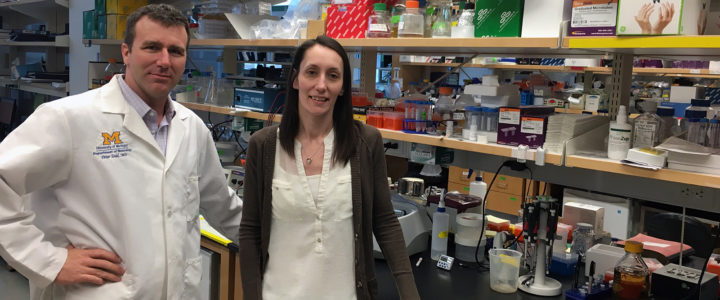
“We are trying to target the first event that goes wrong in Fragile X syndrome”, says Todd, “One reason our previous attempts to develop treatments for Fragile X syndrome have failed is that they’ve tried to target the downstream effects of losing the Fragile X protein. The protein does many things… bypassing all the functions that it normally takes care of has proven difficult from a pharmacologic perspective.”
Read moreDrug Repurposing Study Results Accelerate Progress Towards Fragile X Treatments

While there are over 8,000 rare diseases affecting an estimated 350 million people worldwide, only around 200 of these conditions have effective treatments. Due to the high cost of developing new drugs, rare diseases have historically been less attractive to pharmaceutical companies. Drug repurposing systematically leverages the detailed information available on approved drugs and reduces the time and money needed to deliver safe “new” treatments, but with greater success rates and a potentially more immediate impact on health care.
Read moreBrain Imbalance Target of Dr. Erickson’s New Clinical Trial

According to Dr. Erickson, AZD7325 is a drug that selectively boosts GABA neurotransmission in the brain. GABA is the primary neurochemical in the brain that blocks brain activation. GABA activity is in balance in the brain with Glutamate activity, which is the primary neurochemical that causes brain activation. In Fragile X, GABA activity is insufficient and glutamate activity is excessive, likely causing brain activity to be out of balance. AZD7325 attempts to correct parts of this imbalance by boosting the insufficient GABA activity in the brains of people with Fragile X.
Read moreCombinatorial Drug Treatment in a Model of Fragile X Syndrome using Novel Biomarkers

With a $90,000 grant from FRAXA Research Foundation awarded over 2016-2017, University of California researchers Khaleel Razak, PhD, and Jonathan W. Lovelace, PhD, are exploring drug combinations to limit hypersensitivity to sounds in Fragile X mice.
Read moreMicroRNA Mediated Astroglial GLT1 Dysregulation in Fragile X

Almost all brain research focuses on neurons – nerve cells. However, the brain has many more glial cells which support, nourish, and protect the neurons. FRAXA Research Foundation awarded a 2017 grant $90,000 to support Dr. Yang’s studies of how changes in glial cells contribute to Fragile X syndrome. This grant is funded by a grant from the Pierce Family Fragile X Foundation.
Read moreAutophagy is a Novel Therapeutic Target of Impaired Cognition in Fragile X Syndrome

Dr. Suzanne Zukin, at Albert Einstein College of Medicine, is expert on signaling pathways in the brain and the regulation of synaptic plasticity. With this 2017 grant of $90,000 from FRAXA Research Foundation, she and her team are exploring autophagy, which is how cells clean house, in Fragile X.
Read moreQuantitative Assessment of the Serotonin System in a Mouse Model of Fragile X Syndrome
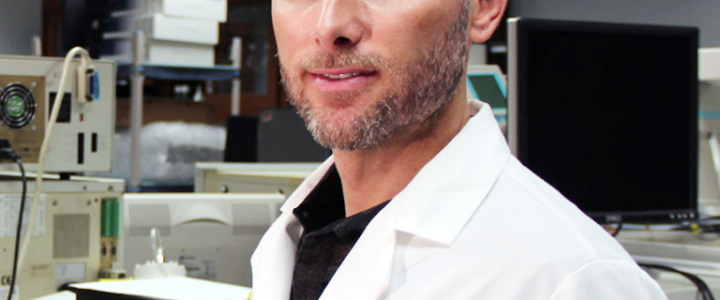
FRAXA Research Foundation awarded a grant of $90,000 over two years to Clinton Canal, PhD. Dr. Canal, previously a research assistant professor at Northeastern University, has just launched his own lab at Mercer University in Atlanta, GA, to focus on Fragile X research.
Read moreTargeted Transcriptional Reactivation of FMR1 in Fragile X Syndrome Stem Cells

With a $90,000 grant from FRAXA Research Foundation awarded in 2016, University of Michigan researcher Peter Todd, MD, PhD, is using CRISPR to selectively turn the Fragile X gene back on in stem cells.
Read moreDefining Subcellular Specificity of Metabotropic Glutamate Receptor (mGluR5) Antagonists
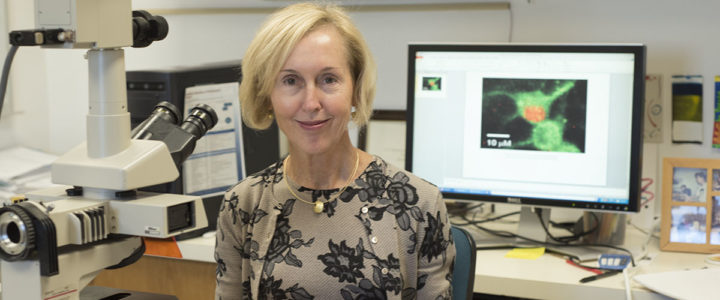
With $217,500 in grants from FRAXA Research Foundation, Dr. Karen O’Malley and team studied the function of mGluR5 when it is inside cells. Many of the symptoms of Fragile X Syndrome (FXS) are thought to arise due to overactive metabotropic glutamate receptor 5 (mGluR5) signaling, which is normally opposed by the protein missing in FXS, Fragile X Protein (FMRP).
Read moreInvestigating Gene Reactivation to Treat Fragile X Syndrome

With a $180,000 grant from FRAXA Research Foundation from 2016-2017, Dr. Jeannie Lee and her team at Harvard are working to reactivate the gene that is silenced in Fragile X syndrome.
Read moreMechanisms of Tolerance to Chronic mGluR5 Inhibition

Over the past few years, both Novartis and Roche sponsored large-scale clinical trials of metabotropic glutamate receptor 5 (mGlu5) negative allosteric modulators (NAMs) to treat Fragile X syndrome (FXS). With a $90,000 grant from FRAXA Research Foundation in 2015-2017, Dr. Mark Bear’s team will explore if mGlu5 NAMs dosed chronically causes tolerance, and if so, how it develops and to probe new avenues to prevent or circumvent it.
Read morePrefrontal Cortex Network (PFC) Dynamics in Fragile X Syndrome
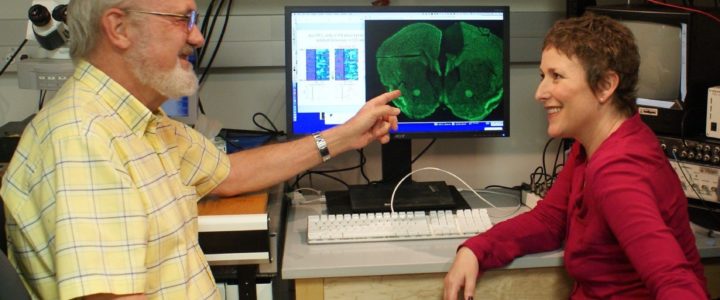
With a $90,000 grant from FRAXA Research Foundation from 2016-2017, Dr. Daniel Johnston and Dr. Jenni Siegel at the University of Texas at Austin are analyzing pre-frontal cortex (PFC) dysfunction in the Fragile X model. They have preliminary evidence that Fragile X mice are severely impaired in a prefrontal cortex (PFC)-dependent task.
Read moreAltered Neural Excitability and Chronic Anxiety in a Mouse Model of Fragile X

With a $35,000 grant from FRAXA Research Foundation in 2016, Dr. Peter Vanderklish at Scripps Research Institute, and colleagues, explored the basis of anxiety in Fragile X syndrome.
Read moreDevelopment of a High-Content Synapse Assay to Screen Therapeutics for Fragile X Syndrome

With a $45,000 grant from FRAXA Research Foundation in 2009, Dr. Mark Bear and Dr. Asha Bhakar used High Content Screening (HCS) to develop an assay sensitive to the effect of the FXS genotype. This project was funded in full by NIH after the first year.
Read more
